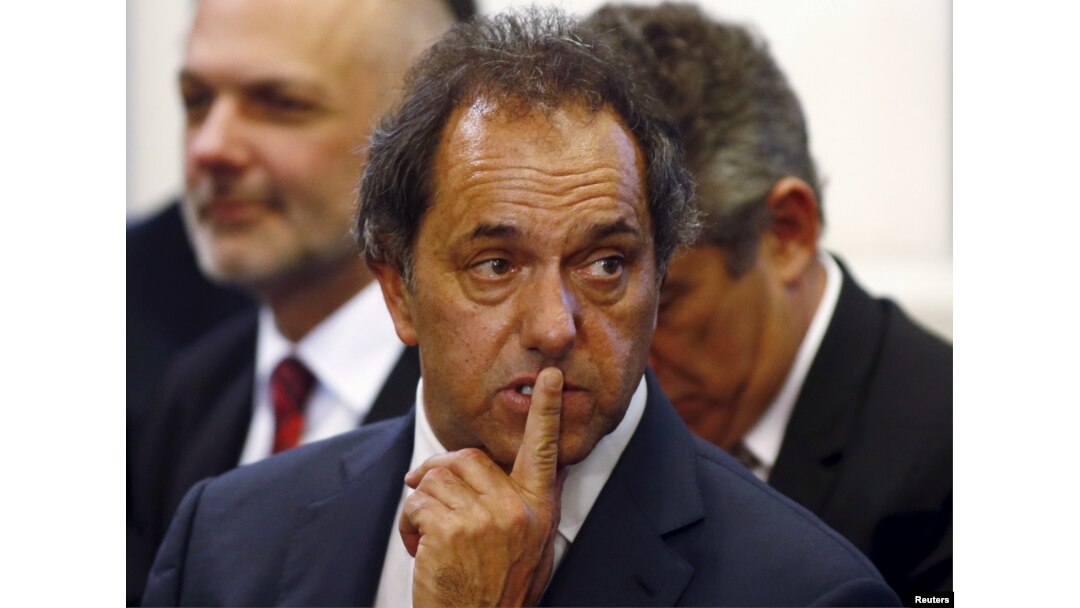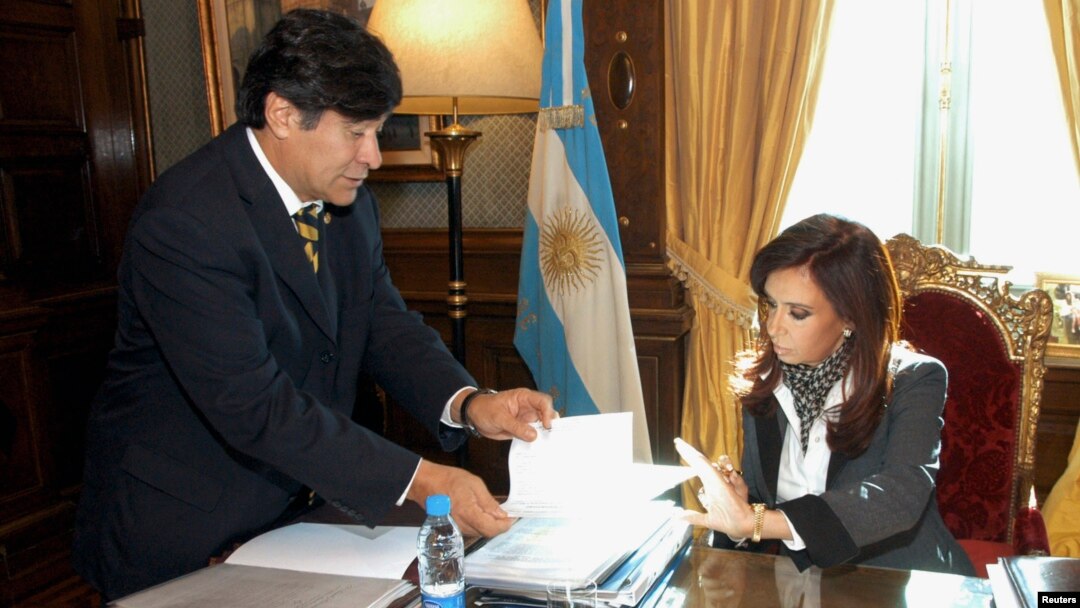Daniel Scioli, the front-running candidate for the ruling Justicialist Party in Argentina's presidential election, said Tuesday that he wanted Carlos Zannini, an adviser from President Cristina Fernandez's inner circle, on his ticket as vice president.
Scioli, currently the governor of Buenos Aires province, has billed himself as the candidate of "gradual change" against the backdrop of a stagnant economy with double-digit inflation and limited access to global credit markets.

FILE - Daniel Scioli, governor of Buenos Aires province, gestures during a ceremony at the Casa Rosada Presidential Palace in Buenos Aires, September 30, 2014.
Yet his choice of running mate for the October presidential elections suggests he might steer a course more in line with Fernandez's unorthodox policies than many supporters had hoped.
Some analysts said it could just be a strategic ploy to win over Fernandez loyalists.
Zannini, legal and technical secretary to the president, rarely makes public appearances but has been broadly described in local media as Fernandez's right-hand man. Fernandez herself is constitutionally barred from a third consecutive term.
The 60-year-old lawyer was nominated in 2003 by Fernandez's predecessor and late husband, Nestor Kirchner.
"I spoke with Cristina and gave her my point of view. I had said I wanted someone who would complement me in experience," Scioli told TV broadcaster C5N.
Candidates are required to list running mates when they register for the August primary by midnight Saturday.
"[This choice] could cast doubts about Scioli's willingness or ability to change the current economic policy," said Ignacio Labaqui, who analyzes Argentina for emerging markets consultancy Medley Global Advisors.
Argentine equity and bond markets have rallied in recent months on the expectation of such change.
Scioli, who has pulled ahead of his two main rivals in recent polls, is walking a tightrope in order to win the support of both Fernandez loyalists and undecided voters demanding change.
A moderate within the broad Peronist movement that has ruled Argentina for all but eight years since the return of democracy in 1983, Scioli is more pragmatic and pro-market than Fernandez and says policy changes are needed to get the economy moving.
But the jury is out on how much change he would truly bring about. He has mostly been vague about specific policies.
Argentina's next president will inherit a broken economy by most standards: inflation running at 20 to 25 percent, low foreign reserves, a gaping fiscal deficit fueled by hefty subsidies, negative real interest rates and a debt default.
Alejo Czerwonko, emerging markets economist at UBS Wealth Management, said Scioli's choice of running mate made sense politically because he needed Fernandez's endorsement. He also said the choice did not necessarily reflect Scioli's future policies.
Scioli's behavior, "if and when he sets himself free" from Fernandez and controls government resources himself, "remains anyone's guess," Czerwonko said.


